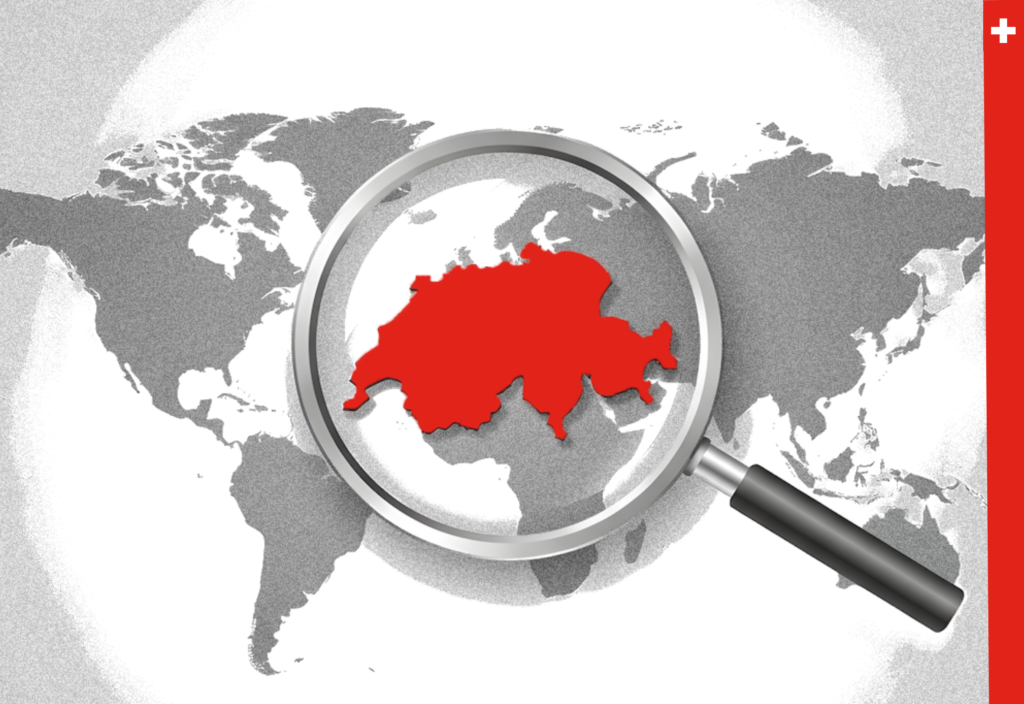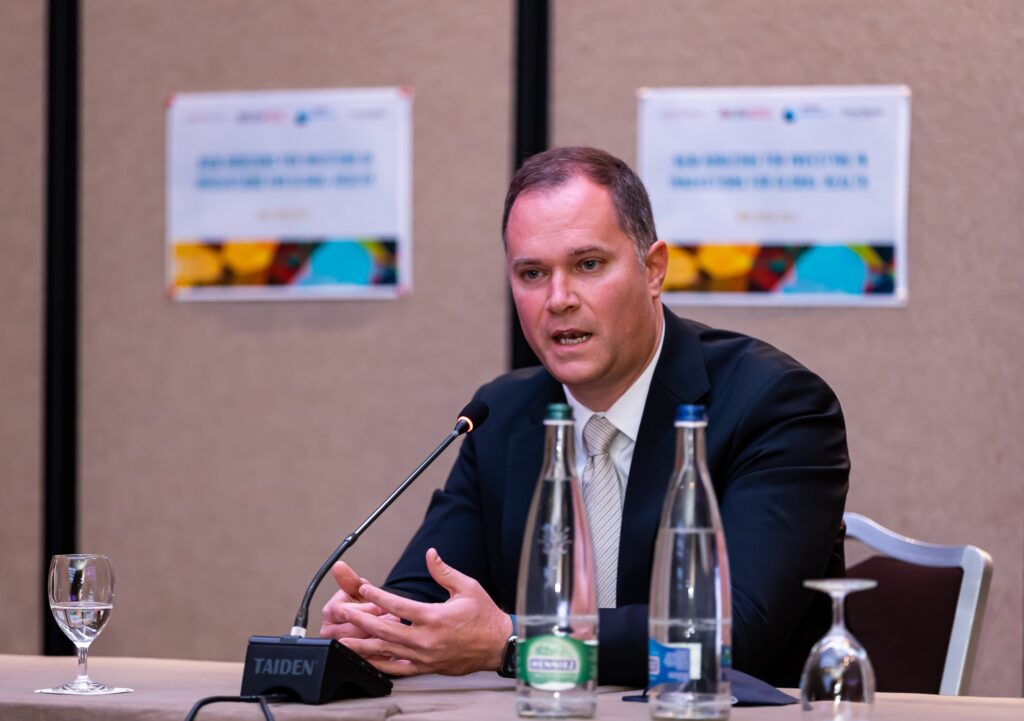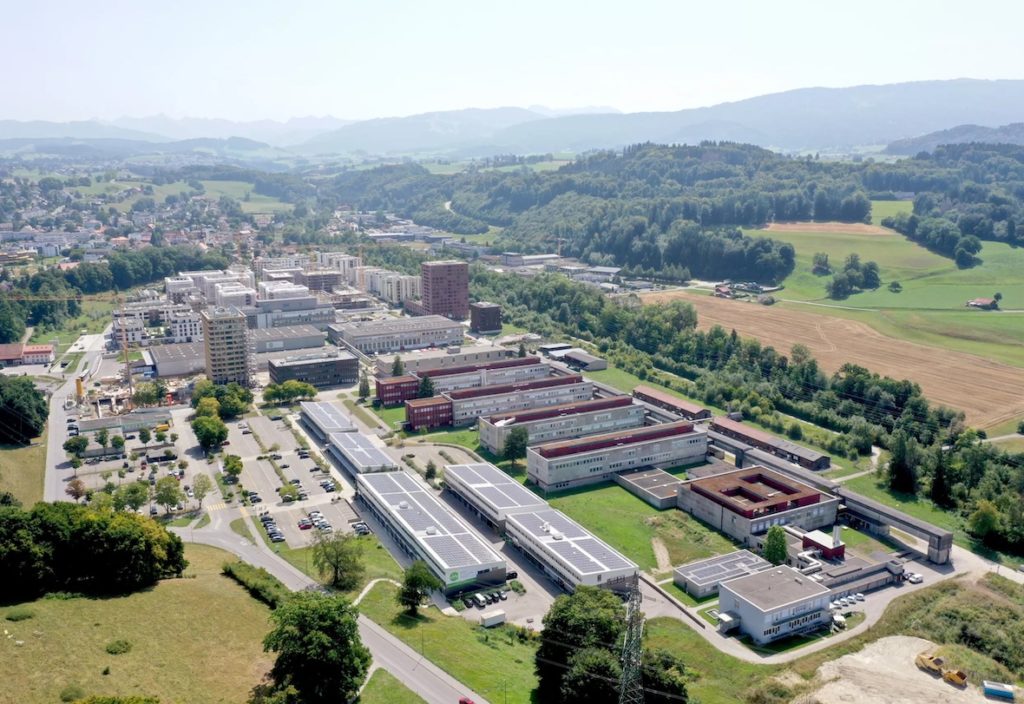
Why The Global Health Security Fund chose Western Switzerland

We recently interviewed Andrew Nerlinger, co-founder of the Global Health Security Fund (GHS Fund), a non-profit organization based in Geneva, Switzerland. Andrew, along with his wife Lisa McDonald, established the GHS Fund in 2021 and chose Geneva as their headquarters after careful consideration. During our meeting with Andrew, he shared insights on the GHS Fund and why Lisa and he ultimately decided to establish it in Western Switzerland.
Could you introduce yourself and your company in a few words?
Lisa and I co-founded the GHS Fund in 2021. We met while attending medical school at Yale University, after which I trained in Emergency Medicine and Lisa became involved in supporting healthcare technology startups. About 12 years ago, I decided to go into venture capital, having always had a particular interest in financing innovative start-ups. Lisa, on the other hand, continued to provide direct support to start-ups in their economic development as the Director of Healthcare for the University of Texas at Austin’s renowned Austin Technology Incubator.
Because of our two complementary roles and our great interest in the issues surrounding global health, we noticed that there was very little communication between global health specialists and technology entrepreneurs. It became evident to us that there was a significant opportunity to improve the situation. Our objective was to address global health issues similarly to how entrepreneurship and technology development are approached. We aimed to discover funding methods such as investments or other innovative ways to finance global health initiatives, particularly those that impact the Global South.
With the GHS Fund, we are creating a global ecosystem for technology innovation in which entrepreneurs tackling global health security challenges are supported. The primary goal of this sustainable program is to identify start-ups with financial viability, and even profitability, and determine their needs to scale their innovations to enable them to grow into a successful business or a self-sustaining, nonprofit organization.
Since the GHS Fund is an organization, our development model is based on three key elements: investors, innovators, and partners. The partners are members of the association. They are international organizations, and service providers for start-ups and universities. Regarding investors, we are developing a community that can support us financially in the field of global health, and we are carefully studying the rapid advancement of these markets.

What were the criteria that motivated your choice of location?
Geneva is the capital of global health, so, it was a natural choice for us. It allowed us to have direct access to the decision-makers, that is to say the people who can implement technology for global health. In addition, being so close to the customers we are interested in, namely global organizations, is a real advantage.
Beyond the proximity to organizations specializing in global health, we also found that Western Switzerland is very involved in impact investing. All funding systems and processes are very fluid and easy to access.
Finally, there is the sophistication of the biotech industry in Western Switzerland. The local community is highly skilled and supportive of the start-ups we bring from around the world. This expertise that Switzerland offers is abundant, and the presence of excellent technology commercialization programs is remarkable.
How do you plan to develop your activities in Switzerland?
When you see the impact of some of the Sustainable Development Goals (SDG) programs taking place in Switzerland, as well as the growing impact of funding community, one can only imagine a promising future for the global health field in Western Switzerland.
We have also been connected with some of the programs at EPFL, for example, and we will soon be going to meet with global health startups supported by that university. We are looking forward to collaborating with them as our experience in Austin has shown us the importance of having an academic hub with us in a project like ours.
We are currently in the process of building our online platform that will be used to organize this entire ecosystem. Our primary goal is to go beyond our current network and to become known to a large part of the global health community.
How did the GGba and the local economic promotion help you?
We were in contact with the GGBa, especially Mark White and Matt Julian, while we were still based in Austin. That prior connection to Switzerland helped us tremendously. Having Mark and Matt in the US made it easy for us to determine whether or not what we wanted to do was feasible in Geneva.
The Geneva Economic Development Agency has also supported us throughout our implementation. We met several times with representatives of the canton, who encouraged us to carry out our project. They also explained to us how to carry out certain administrative procedures, such as obtaining a residence permit. We also benefited from the help of Swiss institutions, such as Campus Biotech, which offered us services in the framework of one of its programs.
What we remember are the personal connections we’ve made. Very frequently, we get emails from some of the GGBa members or other people in the Geneva economic promotion, who put us in touch with start-ups or other potential partners. When you enter an ecosystem you’ve never been a part of before, these personal connections are invaluable.

